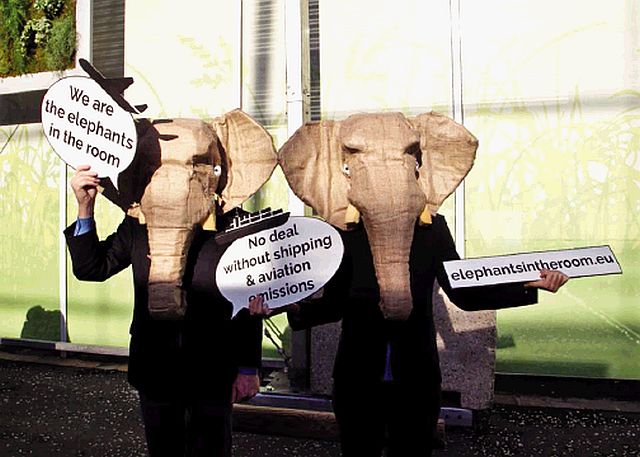
NGO representatives wear elephant masks and hold banners at the United Nations Climate Change Conference in Le Bourget, north of Paris. (AP PHOTO)
LE BOURGET, France — It’s clear at this point that even if the international climate accord being negotiated in suburban Paris becomes legally binding, it won’t include punitive measures like trade sanctions or embargoes on straggler countries that fail to meet their commitments.
The only penalty for falling short on efforts to fight global warming would be failing in front of the whole world to achieve their goals.
And that’s not necessarily a bad thing, many analysts say. In international diplomacy, peer pressure and the risk of losing face can be powerful motivations for a country to keep a promise, particularly on a high-profile issue like climate change.
“Meeting national emissions pledges will emerge as a key measure of international moral and diplomatic standing after a Paris agreement, with countries reluctant to flout their targets and risk being treated as pariahs,” said Paul Bledsoe, a former Clinton White House climate adviser.
Some countries led by the European Union still insist that governments accept legally binding targets to reduce greenhouse gas pollution in the Paris agreement, which is supposed to be adopted at the end of this week. But that’s a no-go for the US for political reasons. So the negotiations are increasingly focused on creating transparency rules to determine whether countries actually follow through on their pledges.
The idea is to ensure that even if the targets aren’t binding internationally, countries would have a binding obligation to report on whether they are achieving their national goals, which could turn into a potentially humiliating experience if they’re not.
“Three words: name and shame,” said Li Shuo, a climate policy expert at Greenpeace China.
Essentially, the system that is emerging is one with clear rules but no mechanism to punish those who break them, like playing a soccer match without a referee.